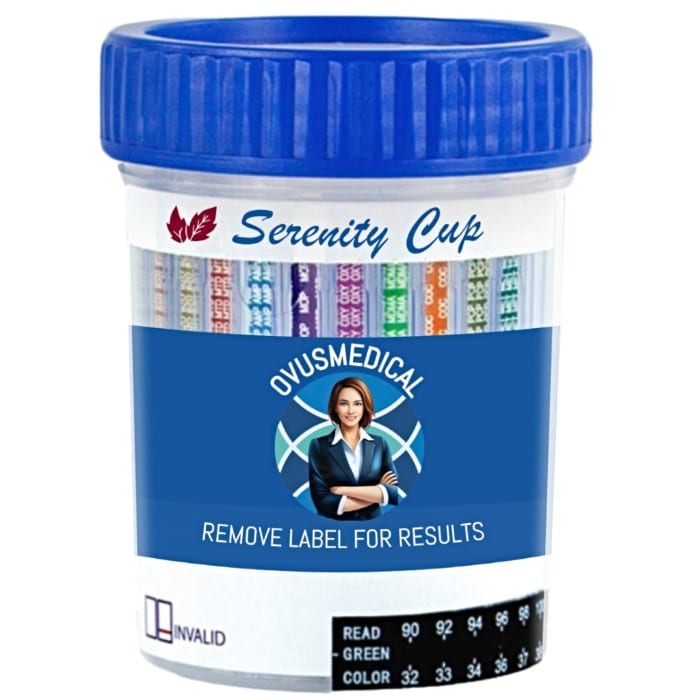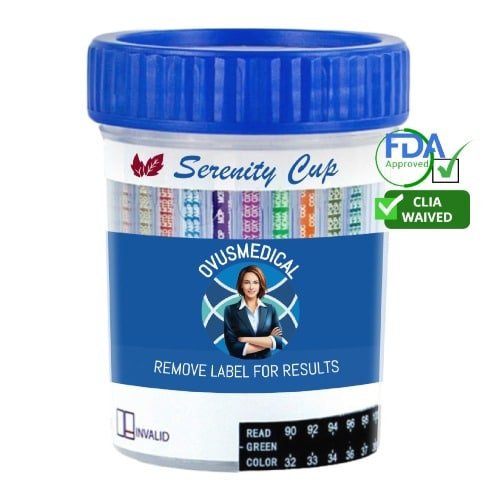Millions of people start their day with coffee, tea, or an energy drink. But if you’re preparing for a urinalysis or drug test, you may wonder: how does caffeine affect urine test results? While caffeine itself isn’t tested for, its effects on the body and urine composition can indirectly influence outcomes.
In this guide, we’ll explore how caffeine is metabolized, its impact on urinalysis, myths vs. facts, and expert advice on what you should know before your next test.
Understanding How Caffeine is Metabolized
Caffeine is rapidly absorbed through the stomach and small intestine, entering the bloodstream within 30–60 minutes. From there, it is broken down in the liver by the CYP1A2 enzyme into three key metabolites:
- Paraxanthine – boosts fat breakdown and increases alertness.
- Theobromine – widens blood vessels and increases urine output.
- Theophylline – relaxes muscles in the airways.
These metabolites are then excreted in urine. Since metabolism speed varies by genetics, lifestyle, and age, caffeine’s influence on urine composition can differ widely from person to person.
The Science Behind Urine Tests
Urine tests (urinalysis) are one of the most common medical diagnostic tools. They can detect:
- Glucose or ketones → diabetes screening
- Protein → kidney health
- Bacteria or white blood cells → urinary tract infection (UTI)
- Drug metabolites → substance use or compliance monitoring
Urine testing usually involves three steps:
- Visual exam (color, odor, clarity)
- Chemical analysis (dipstick testing for pH, glucose, protein, etc.)
- Microscopic exam (checking for bacteria, blood, or crystals)
Because urinalysis is highly sensitive, diet, hydration, and caffeine intake can all affect test results.
Common Urine Tests and Their Purposes
- Routine urinalysis – General health assessment.
- Urine culture – Detects bacterial infections.
- Urine drug test – Screens for illicit or prescription drugs.
Knowing how caffeine may affect each of these helps prevent confusion during result interpretation.
Does Caffeine Affect Urine Test Results?
Caffeine is not a substance checked in drug panels, but it can indirectly influence results:
1. Diuretic Effect
Caffeine increases urination, which can dilute urine samples. This may lower the detectable concentration of substances like drugs, electrolytes, or proteins.
2. Electrolyte Balance
Research shows caffeine increases the excretion of calcium, magnesium, and sodium, which could affect electrolyte-related urine tests.
3. pH Shifts
Caffeine can make urine slightly more acidic, which could alter certain diagnostic readings.
4. False Positives
While uncommon, caffeine metabolites (like theobromine) are structurally similar to some substances tested in drug screenings and could—on rare occasions—cause a false positive.
You may also like…
-
14 Panel Drug Test Cup PCP
As Low As $2.79
Forensic Use Only
$3.59 Info & Price This product has multiple variants. The options may be chosen on the product page -
13 Panel Drug Test w/ FYL
As Low As $2.39
Forensic Use Only
$3.19 Info & Price This product has multiple variants. The options may be chosen on the product page -
12 Panel Drug Test Cup With PCP
As Low As $1.99
FDA/Clia Waived
$3.09 Info & Price This product has multiple variants. The options may be chosen on the product page
Factors That Influence Test Outcomes
Several variables, beyond caffeine, can impact urine test accuracy:
- Hydration status – Too little water = concentrated urine; too much water = diluted results.
- Dietary choices – Protein, supplements, or specific foods can alter pH or color.
- Medications – Certain drugs may change urine chemistry.
- Medical conditions – Diabetes, kidney disease, and liver problems all affect urine composition.
Because caffeine interacts with hydration and electrolytes, it can magnify these factors.
Caffeine Consumption Guidelines Before a Urine Test
To reduce the risk of skewed results:
- Avoid caffeine 12–24 hours before your test (coffee, tea, energy drinks, sodas).
- Stay hydrated with water, but don’t overdo it—avoid extreme dilution.
- Inform your provider about recent caffeine intake, especially if results may appear unusual.
Myths and Misconceptions About Caffeine and Urine Tests
- Myth 1: Coffee causes a failed drug test.
False. Caffeine is not included in drug panels. - Myth 2: Drinking coffee “flushes out” drugs.
False. While caffeine increases urination, it does not accelerate drug clearance. - Myth 3: Caffeine hides substances in urine.
False. Dilution may lower concentrations, but it doesn’t mask drugs or medical markers.
Expert Opinions on Caffeine and Testing
Toxicologists agree that caffeine has minimal impact on standard urine tests but can alter urine composition enough to cause confusion in rare cases.
- Dr. Jane Smith, Toxicologist – “While caffeine isn’t screened for, its diuretic effect can dilute samples. Patients should always disclose caffeine use before testing.”
- Dr. John Doe, Clinical Lab Scientist – “Genetics affect caffeine metabolism. Some people may show more changes in urine tests than others.”
The consensus: caffeine doesn’t directly “fail” tests, but limiting intake before testing ensures cleaner, more reliable results.
What You Need to Know Before Your Next Test
So, how does caffeine affect urine test results? While it won’t make you fail a drug test, caffeine can:
- Dilute urine samples
- Increase mineral excretion
- Alter urine acidity
- Rarely interfere with drug test readings
To be safe, reduce caffeine for 24 hours before your test, hydrate moderately, and let your healthcare provider know about your intake. Being proactive ensures your results accurately reflect your health.
FAQ: Caffeine and Urine Tests
Does caffeine show up in urine tests?
No, caffeine itself is not tested in standard panels.
Can caffeine cause a false positive?
Rarely, but some metabolites may cause confusion in certain drug screenings.
Should I avoid coffee before a drug test?
Yes, avoid caffeine for at least 12–24 hours beforehand.
Does caffeine change urine pH?
Yes, it can make urine slightly more acidic.
Does caffeine help you pass a drug test?
No. It increases urination but does not “flush out” drugs.







